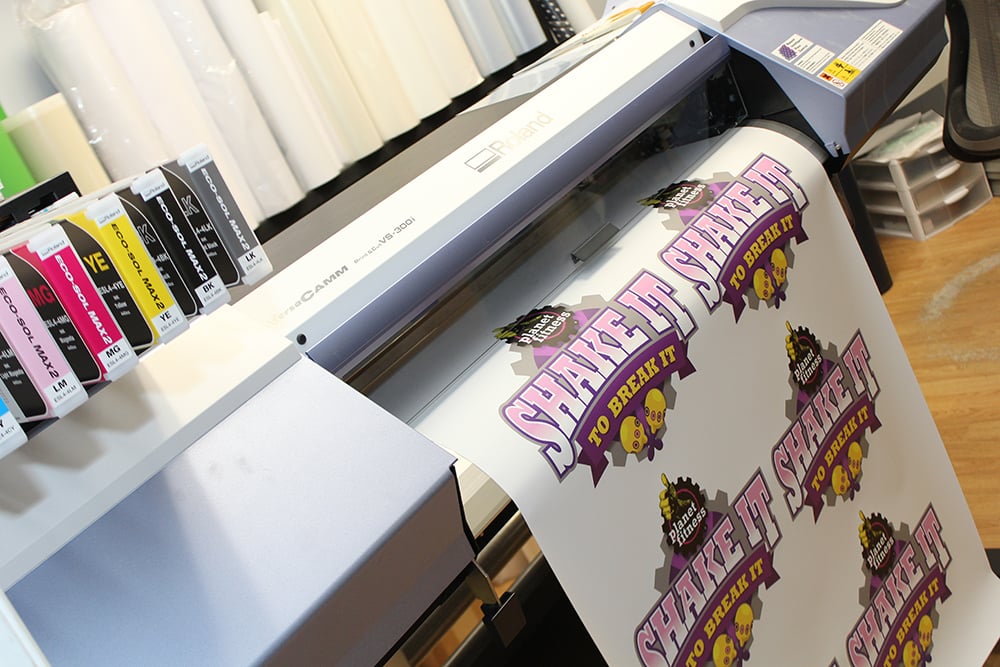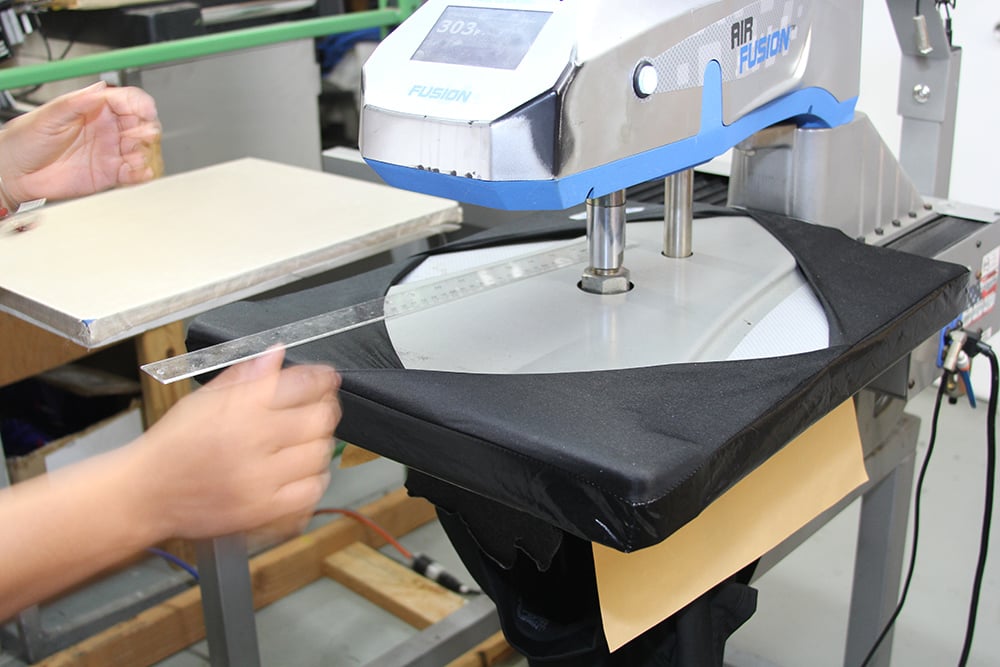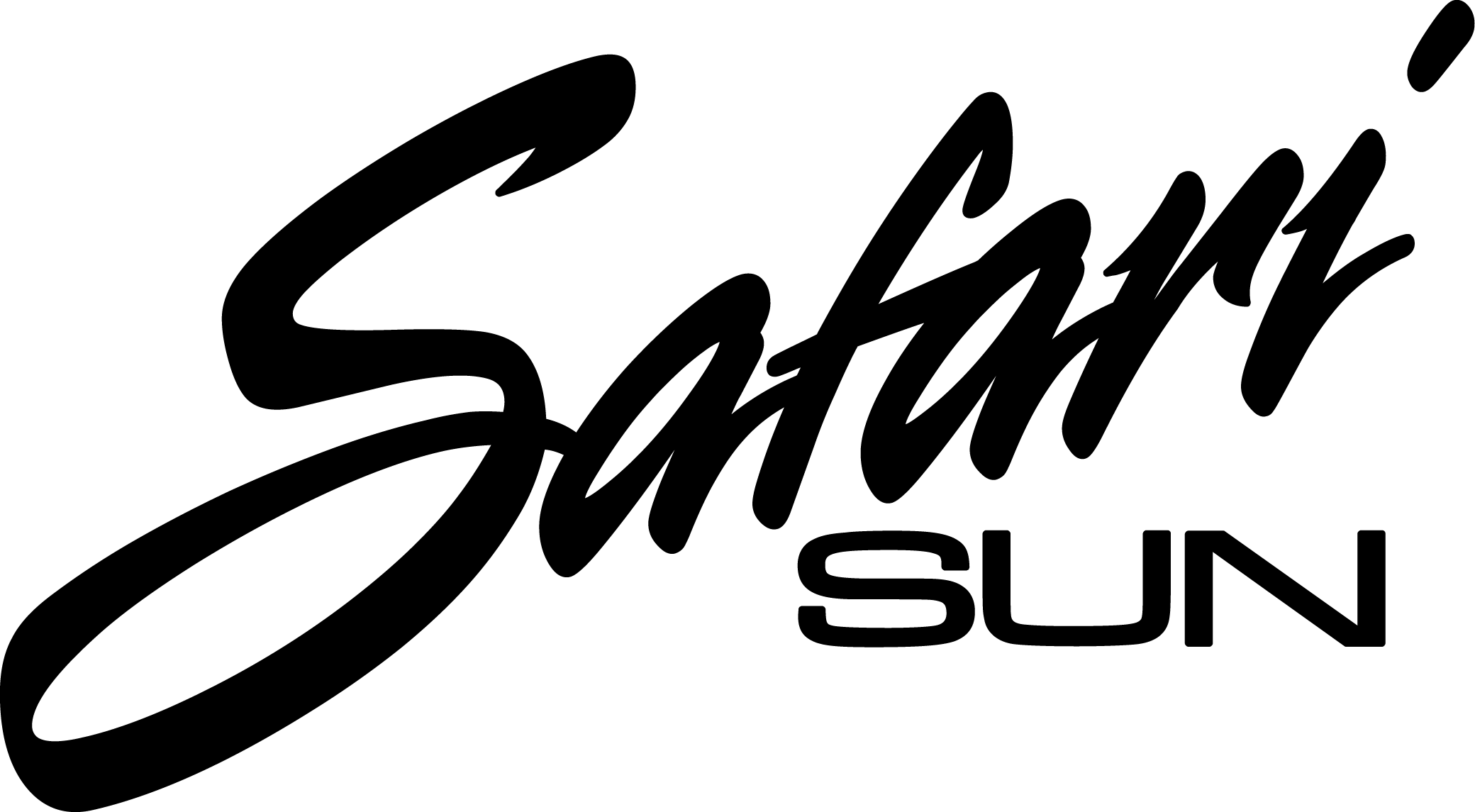
WHAT IS HEAT-TRANSFER PRINTING?
Heat-transfer printing, also referred to as thermal printing, uses an application of heat to transfer printed images onto the surface of a shirt. This method works by using specialized equipment to print custom images onto thermal-friendly transfer material which is then applied onto the shirt through use of heat.
Thermal printing is a great method for small orders & supports highly detailed designs that can be applied to garments in a variety of unique placements.
HEAT-TRANSFER vs TRADITIONAL PRINTING
The biggest difference between heat-transfer and other printing options comes down to it’s methods of applying graphics to the fabric. Screen printing & DTG involve applying ink directly onto the fabric, while thermal-printing uses a printer to apply ink onto transfer material first, which is then thermally applied to garments. Heat-transfers can produce highly detailed results, but integrate both the ink and transfer material onto the fabric rather than just inks.
Still not sure if Heat-Transfers are right for you? Here’s how our different methods measure up!
DTG
Click Each for More Info
Suitable for Small Orders
Direct to Garment printing is ideal for smaller orders, especially if your design is highly detailed, photo-realistic or involves many colors. It is a great cost effective option for those looking to get one-off shirts for gifts, birthday parties, dedications or a handful of friends or family.
Minimal Cost & Investment
Our DTG services are priced at a flat rate, so the absence of a setup and screens makes it far more cost effective for those who only want a handful of shirts. Pricing ranges from $12 – $22 per garment depending on style & print coverage.
Limited Apparel Selection
DTG printing is best suited for 100% cotton and blends with high cotton content. Because of this, specific blends and styles of garments may be incompatible with this printing method.
Prints Best on Lights & Heathers
Because this method uses water-based inks, printed graphics of any kind are going to look their cleanest & brightest on lighter colors. This printing style also works exceptionally well with 50/50 heather shirts for any design requiring a vintage feel. Some darker garments can be more of a challenge & aren’t always receptive to maintaining the same quality brightness.
Limited Size & Placement
Because of the physical constraints of the equipment, DTG printing is limited to a max size of 12″w x 15″h. For prints requiring larger dimensions or special placement, screen printing is highly recommended.
High Detail Prints & Elaborate Colors
Because it works like a printer, DTG can support the most detailed design, with as many colors as you want. This allows for easy printing of elaborate photo-realistic artwork or full color photographs without the loss of details.
However, because this method uses a single layer of ink, DTG produces a slightly more faded design. Additionally, there are some limitations that make certain color combinations difficult and, depending on the garment & artwork, the overall brightness of the print can sometimes be impacted.
HEAT-TRANSFER
Click Each for More Info
Suitable for Small Orders
Heat-Transfer printing is ideal for smaller orders, especially if your design is highly detailed, photo-realistic or involves many colors. It is a great cost effective option for those looking to get one-off shirts for gifts, birthday parties, dedications or a handful of friends or family.
Minimal Cost & Investment
Our Heat Transfers are priced at a flat rate, so the absence of a setup and screens makes it far more cost effective for those who only want a handful of shirts. Pricing ranges from $12 – $22 per garment depending on style & print coverage.
Moderate Apparel Selection
Heat-Transfers can be applied to most garments. However, because of the high temperature associated with heat application, certain garments and blends may not be compatible with this method. Garments that are exceptionally lightweight or that have thin material will also not compliment this method as the transfers can be bulky in nature.
Prints Well On Most Colors
Heat-transfer works very smoothly for both darks & lights and an extensive range of colors. However, because heat-transfer relies on integrating the transfer material onto the shirt, there are select colors that will not be compatible. Super saturated colors like bright neons & shirts with heavy amounts of dye often do not translate well & are unavailable for use with this method.
Moderate Size & Placement
For the most part, transfers lend themselves easily to a variety of unique placements. However, because of the physical constraints of the heat press, transfer printing is limited to a max size of 15″w x 18″h. For prints requiring larger dimensions, screen printing is highly recommended.
High Detail Prints & Elaborate Colors
Because the graphics for heat transfers are produced with specialized printers, thermal printing can support highly detailed designs with as many colors as you want. This allows for easy printing of elaborate photo-realistic artwork or full color photographs without the loss of details.
However, because this method integrates the transfer material into the fabric itself, heat transfers tend to be a bit more weighted than an average print and can have a noticeably glossy look & feel to them. Additionally, heat transfers also produce a slightly more faded design by comparison to screen printing.
SCREEN PRINTING
Click Each for More Info
Suitable for Large Orders
Screen printing is ideal for larger orders, especially if your design is relatively simple or has fewer colors. It’s durable & a great cost effective option for those looking to get custom shirts for a business, school, fundraiser or large scale event.
Cost Efficient Investment
Screen printing is most cost-effective for larger quantities of shirts. The screen process means that set-up is more labor intensive but the trade off is it makes printing far more efficient. Overall, the cost savings is built in as you print more t-shirts, making screen printing a smarter choice for designs requiring fewer colors & larger quantities.
Large Apparel Selection
Screen printing will produce a vibrant, durable design with more saturated colors than the DTG process. However, the labor-intensive process of turning your design into multiple screens limits the number of colors you can use & the amount of detail that can be translated.
Prints Well On All Colors
Screen printing produces beautiful, saturated colors and a distinctive, authentic appearance on any color garment. As a more labor-intensive process, this printing method is extremely versatile and lends itself smoothly to any color garment without the loss of brightness or print quality.
Flexible Size & Placement
Because screen printing relies on different equipment there is far more flexibility when it comes to print sizes & design placement. Screen printing’s only real limit are it’s screen sizes so this method is much more accommodating for anything requiring a larger print size or creative placements like side or shoulder prints.
High Quality Prints & Brighter Colors
Screen printing will produce a vibrant, durable design with more saturated colors than the DTG process. However, the labor-intensive process of turning your design into multiple screens limits the number of colors you can use & the amount of detail that can be translated.
THE HEAT-TRANSFER PROCESS
Thermal printing is capable of handling all kinds of designs in many colors. Once a design is printed onto transfer material, heat is applied to both the transfer and garment allowing the transfer material to integrate & stick onto the shirt’s surface. Want to see how the whole thing comes together? Check out our heat-transfer process in action!


